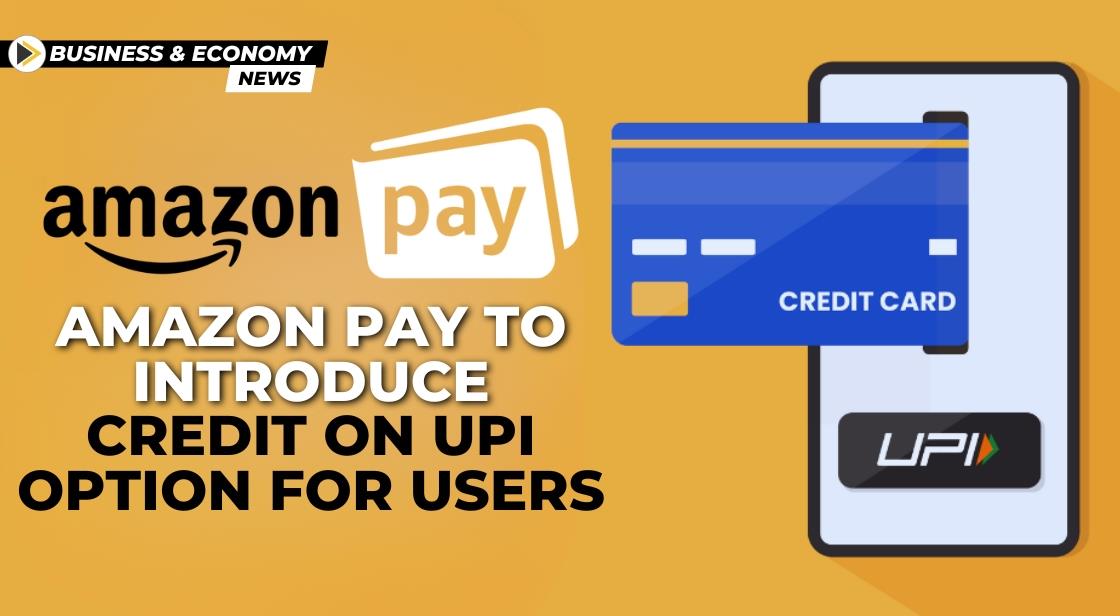Amazon Pay to Introduce Credit on UPI Option for Users

News Synopsis
Amazon Pay, in its continuous efforts to expand its services and improve user experience, is gearing up to introduce credit options for UPI payments in collaboration with the National Payments Corporation of India (NPCI). This move comes as part of Amazon Pay's strategy to enhance its payment platform and provide additional financial flexibility to its users.
Amazon Pay Partnership with ICICI Bank and RBL Bank:
Amazon Pay has been actively collaborating with leading financial institutions to diversify its offerings. Recently, it joined hands with ICICI Bank to facilitate FASTag recharges and launched a co-branded credit card. Additionally, it partnered with RBL Bank to enable UPI payments on its platform, expanding its reach and accessibility to users across the country.
Initiatives for Credit on UPI:
The decision to introduce credit options for UPI payments stems from the recognition of certain challenges and opportunities in the current landscape. There have been uncertainties surrounding the interchange fee structure for credit on UPI transactions, coupled with low adoption rates among smaller merchants. To address these issues, Amazon Pay aims to leverage its extensive network of merchants to establish a discount rate, incentivizing all stakeholders and fostering growth in credit for UPI transactions.
Statement from Amazon Pay:
Vikas Bansal, the whole-time director of Amazon Pay, emphasized the company's commitment to enhancing customer experience and value proposition. He highlighted the collaboration with NPCI as a significant milestone in their pursuit of improving financial services. Bansal expressed optimism about the potential of credit on UPI transactions to drive innovation and convenience for users.
Current Reach and Acceptance:
Amazon Pay boasts a substantial presence in both offline and online markets, with approximately 8.5 million brick-and-mortar sellers across 350 urban and rural areas. Moreover, it is accepted by over 10,000 online sellers, including popular platforms such as Uber, Zomato, and Swiggy. This widespread acceptance underscores Amazon Pay's relevance and influence in the digital payment ecosystem.
Recent Developments by NPCI:
In alignment with the upcoming initiative by Amazon Pay, NPCI introduced three new features for UPI-linked RuPay credit cards earlier this month. These features include the option to apply for EMI facility, set up UPI AutoPay for credit card bill payments, and enhance credit card limits. The rollout of these features is scheduled to commence from May 31, further enhancing the usability and attractiveness of UPI-based credit cards.
Amazon Pay's Strong Merchant Network: A Potential Advantage
Amazon Pay boasts a robust network of approximately 8.5 million offline merchants across 350 cities and towns in India. This extensive reach, coupled with partnerships with over 10,000 online merchants like Uber, Zomato, and Swiggy (as per the report), positions Amazon Pay favorably to potentially influence the interchange fee structure and drive wider adoption of credit on UPI among smaller merchants.
Recent Developments in UPI Transactions: Enhanced Features for RuPay Credit Cards
Earlier this month, NPCI unveiled three new features specifically designed for UPI-linked RuPay credit cards. These features include the ability to:
-
Apply for EMI ( equated monthly installment) facility through these credit cards
-
Set up UPI AutoPay for automatic credit card bill payments
-
Increase RuPay credit card limits
The rollout of these new features is expected to begin on May 31st, 2024.
Conclusion:
Amazon Pay's collaboration with NPCI to introduce credit options for UPI payments signifies a significant step towards innovation and inclusivity in the digital payment space. By addressing existing challenges and leveraging strategic partnerships, Amazon Pay aims to enrich the financial experience of its users and contribute to the growth of digital transactions in India.
You May Like









